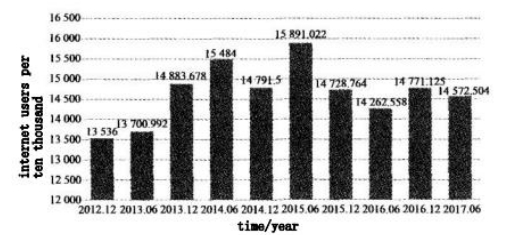
Published 12-11-2024
Keywords
- Adolescents,
- New Media Literacy,
- Capacity Building
Copyright (c) 2024 The Young Thinker's Review

This work is licensed under a Creative Commons Attribution-NonCommercial 4.0 International License.
How to Cite
Abstract
Emphasizing the cultivation of adolescents' new media literacy and their ability to respond to the new media environment is of great significance to the growth of young people. Adolescents can enhance their learning autonomy, broaden their horizons, and meet their personalized development needs by utilizing new media in their studies and daily lives; however, new media has certain adverse effects on the construction of a systematic knowledge system and the development of reading, learning, thinking, and critical abilities in adolescents. Based on the characteristics of new media, this article analyzes the pros and cons of new media's impact on adolescents and preliminarily discusses the cultivation of adolescents' new media literacy from multiple perspectives, including the nation, society, schools, teachers, parents, and students themselves.
References
- Liu Xing fang. An Introduction to New Media [M]. Beijing: Communication University of China Press, 2015.
- Sacks D. Canadian Paediatric Society Adolescent Health Committee Age Limits and Adolescents [J]. Paediatrics & Child Health, 2003, 8(9): 577.
- Jiao Fei. A Study on New Media Literacy of Adolescents in the Field of New Media [D]. Wuhan: Huazhong University of Science and Technology, 2008.
- Yun Semin. Research analysis of domestic media literacy education: focusing on middle school programs [J]. Studies of Korean Science, 2017, 43(2): 39-67.
- Kesler Ted, Tinio Pablo PL, Nolan Brian T. What's our position? A critical media literacy study of popular culture websites with eighth-grade special education students [J]. Reading & Writing Quarterly, 2016, 32(1): 1-26.
- Zhao Xia. A Study on the Impact of New Media on Adolescents' Reading [J]. China Youth Studies, 2014(2): 21-26.
- [7Liu Hui, Wang Yue. A Study on the Education Model of New Media Literacy for Adolescents in China [J]. Journal of Shandong Youth University of Political Science, 2014(1): 6-11.
- Zhang Tai Lai. New Media Literacy: An Important Part of the Quality Education for Adolescents [J]. Basic Education Research, 2010(1): 55-56.
- Tu Tao, Li Wen. New Media and Future Education [J]. China Educational Technology, 2015(1): 34-38.
- Wang Dun. New Media and the New Challenges to the Ideological and Political Education of "Post-90s" College Students [J]. Research in Ideological and Political Education, 2010(1): 71-74.
- Wang Geng, Zhou Zhiqiang. An Empirical Analysis of the Behavioral Imbalance of College Students in the New Media Environment: Based on a Survey of 8 Universities in Liaoning [J]. Journal of Guangxi Youth Officers College, 2014(10): 32-35.
